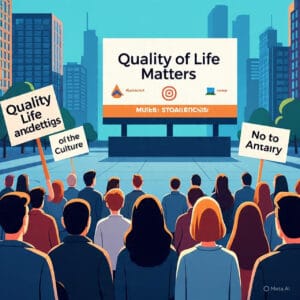Buy the Right Kind of Life Insurance

By J. A. Soto
One of the most important expenditures the average Family should make is life insurance. It is also one of the most misunderstood. It is absolutely critical that you make the right decision about the kind amount of life insurance to buy.

In fact, the wisdom of your life insurance purchase can make a major difference in your families security, should you die, and your quality of life if you don’t.
Think about it. Many folks spend hundreds of dollars a month insuring a car which, in most cases, probably wouldn’t cost more than $20,000 – $30,000 to replace.
But how much do you think it would cost to replace the income of a breadwinner in the event they passed away?
If someone were making $50,000 a year, and they’re married with kids, and the spouse were making about the same, and one of them passed away prematurely, aside from the emotional loss, how financially devastated would that be for the widow(er) and their children? They’d be in trouble.
Now, when I have conversations with people who don’t have life Insurance its usually because they know its importance, but because of their busy life, they took the time to get it.
Also, they are affraid of another bill; they don’t care about their family enough to protect themselves.
I know the last one sounds cruel but it’s the truth. It amazes me all the things people spend money on that in reality they waste. (Cigarettes, eating out, cable etc)
THE PURPOSE OF LIFE INSURANCE
Life Insurance should really be called “death protection” because its purpose is to protect the family against the premature death of a breadwinner or caregiver.
It acts as a substitute for income. For example: Let’s say someone earns $50,000 a year. When they die, $50,000 a year just died with them.
However, if this person had $500,000 of life insurance and their spouse took that money and invested it into a vehicle that earned 10%, then that beneficiary would receive $50,000 a year in interest income without touching the principle.
That means the deceased’s income would continue to support the family even though they’re not alive. Can you
see the importance?
WHO SHOULD BUY IT?
Mainly people who have others depending on them for income support. If you have a non-earning spouse and/or children, or some other significant financial obligation, you need life
Insurance.
Your spouse may also need coverage, even if he or she doesn’t work, if child care or other expenses would result from the spouse’s death. Even if your younger and/or single you may
consider purchasing life insurance because the cost of insurance is based on two things: age and health. Right now you’re the youngest; you’ll ever be and probably the healthiest.
WHAT SHOULD YOU BUY?

Inexpensive Term insurance. A common misconception about life Insurance is that it is A permanent need for each family. Most financial experts see it as a way to simply “buy-time” until you accumulate savings, not as a permanent fixture in your financial program. Think about it.
In the above example of someone having $500,000 in coverage, would they really need that much coverage if they had $500,00 saved in retirement plans or mutual funds? Of course not.
SOME QUESTIONS ABOUT CASH VALUE LIFE INSURANCE

When it comes to life Insurance, you have two basic choices: some form of cash value life insurance (including universal life, whole life and variable life) and term insurance. In cash value
insurance, as a “bundled” policy, you buy both your death benefit and a cash value feature.
However, this doesn’t enable you to maximize the benefits of the Theory of Decreasing Responsibility (the idea that as your responsibilities decrease, the need for insurance does also).
I guess by now you can tell which type of life insurance I believe is best. If you still have your doubts, go check out Dave Ramsey or Suzie Orman. See what they say. Or if you’d like, go pick up a book called “Personal Finance for Dummies.” Do the same research I’ve done. I think you’ll agree with me.
QUESTION
With cash value life insurance, how do you know what your paying for?
ANSWER
This can be hard to determine in a bundled product, especially with universal and variable life. In addition to the cost of death protection, cash value policies may have significant fees.
And with the “two-in-one” approach, it’s difficult to separate the cost of insurance from the other elements of the policy. This makes it difficult to comparison shop. Any time you’re not sure what you’re paying, you risk making a bad decision.
WHAT THE EXPERTS SAY


THE 3 ‘NEVERS’ OF BUYING LIFE INSURANCE
1. NEVER Buy any kind of “cash value’ or whole life insurance, including universal life.
2. NEVER buy life Insurance as AN investment.
3. NEVER buy a life insurance policy that pays dividends (which is really a return of overpaid. Premiums).
Well, there you have it. A common sense approach to understanding life insurance.
J.A. Soto
Financial Coach to Thousands
Email: TEAMUSA.SOTO7@GMAIL.COM
Direct number: 917-833-6422
**If you have any questions feel free to email me directly.**















Wow! After all I got a web site from where
I be able to in fact get valuable facts concerning
my study and knowledge.